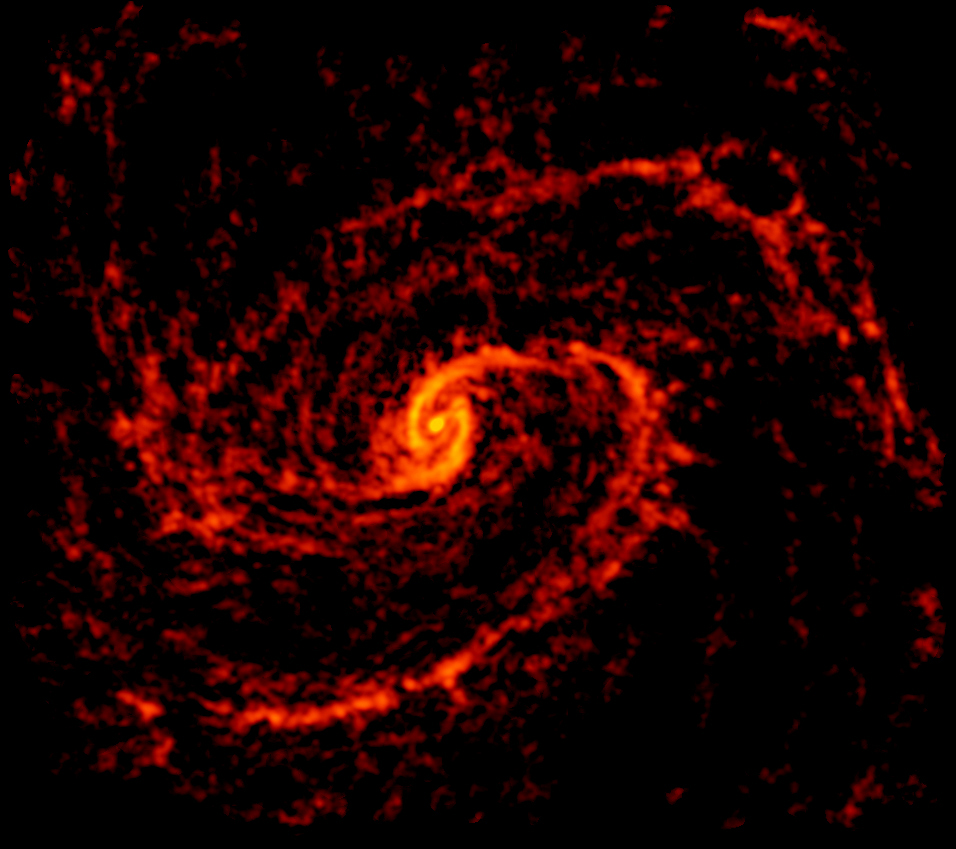Why is Dark Matter a Required Gravitational Component of Galaxies?

Question:
Sir,
I have a question.
If I understand correctly, one of the reasons dark matter must exist is that otherwise the galaxies would have a mass that is too small to keep all the stars together.
The stars rotate around the center of the galaxy with a such a speed that the combined mass of the stars, black holes, clouds etc. is not enough to keep the stars in an elliptical orbit.
The stars would spiral outwards without dark matter.
But how do we know that the stars are not spiraling outwards? Is it not possible that the galaxies are expanding, with the galaxies becoming bigger and bigger (with more space between the stars)?
Regards, Marcel
Answer:
For most galaxies the mass density that we can measure due to its brightness decreases as one moves from the center of the galaxy to its outskirts. This would imply that the rotation speeds of stars orbiting the galaxy’s center should decrease with distance. This is not, though, what is observed, and instead the rotation speeds of stars stay constant with distance from the galaxy center. This implies that there must be some unobservable, or “dark” matter in the outskirts of galaxies. We know that the galaxies are not expanding, or that the stars are moving out away from the galaxy center, as we can measure very accurately the motions of stars in galaxies. These measurements indicate that stars move in generally closed orbits about a galaxy’s center.





